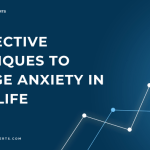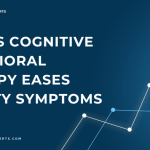Table of Contents
- Understanding Anxiety
- 1. Practice Mindfulness Meditation
- 2. Exercise Regularly
- 3. Maintain a Healthy Diet
- 4. Get Enough Sleep
- 5. Limit Caffeine and Alcohol
- 6. Build a Support Network
- 7. Practice Deep Breathing Techniques
- 8. Seek Professional Help
- 9. Utilize Technology
- 10. Set Realistic Goals
- FAQs
- Conclusion
Understanding Anxiety
Anxiety is a natural response to stress, characterized by feelings of worry, fear, or apprehension. While everyone experiences anxiety from time to time, chronic anxiety can interfere with daily life and impact mental health. In today’s fast-paced world, anxiety disorders have become increasingly common, affecting millions of individuals globally. Understanding the various strategies to manage anxiety can empower you to take control of your mental health.
1. Practice Mindfulness Meditation
Mindfulness meditation involves focusing your attention on the present moment while calmly acknowledging and accepting your feelings, thoughts, and bodily sensations.
Benefits:
- Reduces stress and anxiety levels
- Improves focus and concentration
- Enhances emotional health
How to Practice:
- Start Small: Begin with just five minutes a day.
- Find a Quiet Space: Choose a comfortable spot free from distractions.
- Focus on Your Breath: Inhale deeply through your nose and exhale through your mouth.
Resources: For guided meditations, check out Headspace or Calm.
2. Exercise Regularly
Physical activity is a powerful antidote to anxiety. Exercise releases endorphins, the body’s natural mood lifters, and improves overall mental well-being.
Recommended Activities:
- Cardio Workouts: Running, cycling, or swimming for at least 30 minutes.
- Yoga: Combines physical movement, meditation, and breathing exercises.
- Outdoor Activities: Hiking or walking in nature can reduce stress significantly.
Frequency:
Aim for at least 150 minutes of moderate aerobic activity per week, according to the CDC.
3. Maintain a Healthy Diet
The foods you consume can have a profound impact on your mood and mental health. A balanced diet rich in nutrients can help reduce anxiety symptoms.
Key Nutrients:
- Omega-3 Fatty Acids: Found in fish, flaxseeds, and walnuts; these can improve brain function.
- Antioxidants: Fruits and vegetables like berries and leafy greens help combat oxidative stress.
- Magnesium: Found in nuts, seeds, and whole grains, magnesium deficiency is linked to increased anxiety.
Tip: Consider keeping a food diary to identify any dietary triggers for your anxiety.
4. Get Enough Sleep
Sleep is crucial for mental health, and lack of sleep can exacerbate anxiety symptoms. Aim for 7-9 hours of quality sleep each night.
Sleep Hygiene Tips:
- Create a Sleep Schedule: Go to bed and wake up at the same time every day.
- Limit Screen Time: Reduce exposure to screens at least one hour before bedtime.
- Create a Restful Environment: Keep your bedroom dark, quiet, and cool.
Resources: Explore Sleep Foundation for more tips on improving sleep quality.
5. Limit Caffeine and Alcohol
Both caffeine and alcohol can increase anxiety levels. While caffeine can provide a temporary energy boost, it can also lead to heightened feelings of anxiety.
Recommendations:
- Limit Caffeine Intake: Consider switching to herbal teas or decaffeinated options.
- Moderate Alcohol Consumption: If you drink, do so in moderation, as alcohol can disrupt sleep and increase anxiety.
6. Build a Support Network
Having a strong support network can make a significant difference in how you cope with anxiety. Surround yourself with friends, family, or support groups who understand your challenges.
Ways to Connect:
- Join Support Groups: Look for local or online groups focused on anxiety management.
- Reach Out: Don’t hesitate to share your feelings with trusted friends or family members.
Resource: Consider platforms like Meetup to find local support groups.
7. Practice Deep Breathing Techniques
Deep breathing exercises can help calm your mind and body, making them an effective tool for managing anxiety.
Techniques:
- 4-7-8 Breathing: Inhale for 4 seconds, hold for 7 seconds, and exhale for 8 seconds.
- Diaphragmatic Breathing: Breathe deeply into your diaphragm instead of shallowly into your chest.
Tip: Incorporate deep breathing exercises into your daily routine, especially during stressful moments.
8. Seek Professional Help
If your anxiety becomes overwhelming, it’s important to seek professional help. Therapists and counselors can provide tailored strategies to help manage anxiety.
Treatment Options:
- Cognitive Behavioral Therapy (CBT): A highly effective treatment for anxiety disorders.
- Medication: In some cases, medication may be prescribed to help manage symptoms.
Resource: Find a therapist through Psychology Today.
9. Utilize Technology
Technology can be a useful ally in managing anxiety. From apps to online therapy, various tools are available to support mental health.
Recommended Apps:
- Woebot: An AI chatbot that provides mental health support.
- Sanvello: Offers guided journeys for managing anxiety and stress.
Tip: Explore options that work best for you and incorporate them into your routine.
10. Set Realistic Goals
Setting achievable goals can help reduce feelings of overwhelm. Break tasks into smaller steps and celebrate your progress.
Steps to Goal Setting:
- SMART Goals: Ensure your goals are Specific, Measurable, Achievable, Relevant, and Time-bound.
- Track Your Progress: Use a journal or app to monitor your achievements.
Example: Instead of saying, “I want to be less anxious,” aim for, “I will practice deep breathing for 5 minutes every day.”
FAQs
Q: How long does it take to see improvements in anxiety?
A: It varies for everyone, but many people notice improvements within a few weeks of consistently practicing these strategies.
Q: Can anxiety be completely cured?
A: While anxiety may not always be completely cured, it can be effectively managed with the right strategies and support.
Q: When should I seek help for my anxiety?
A: If anxiety interferes with your daily life or causes significant distress, it’s time to seek professional help.
Conclusion
Managing anxiety is a journey that requires patience and practice. By incorporating these ten effective strategies into your daily routine, you can take meaningful steps toward improved mental health. Remember, it’s okay to seek help and lean on your support network when needed. Your mental well-being is a priority, and you have the power to manage your anxiety.
For more information on mental health resources, visit Mental Health America.
By integrating these strategies into your life, you can foster a healthier mindset and create a more balanced approach to managing anxiety. Take the first step today and invest in your mental health journey!




